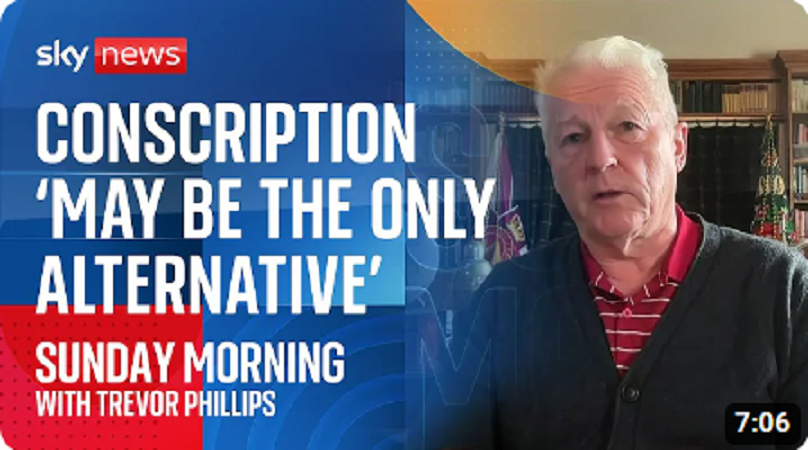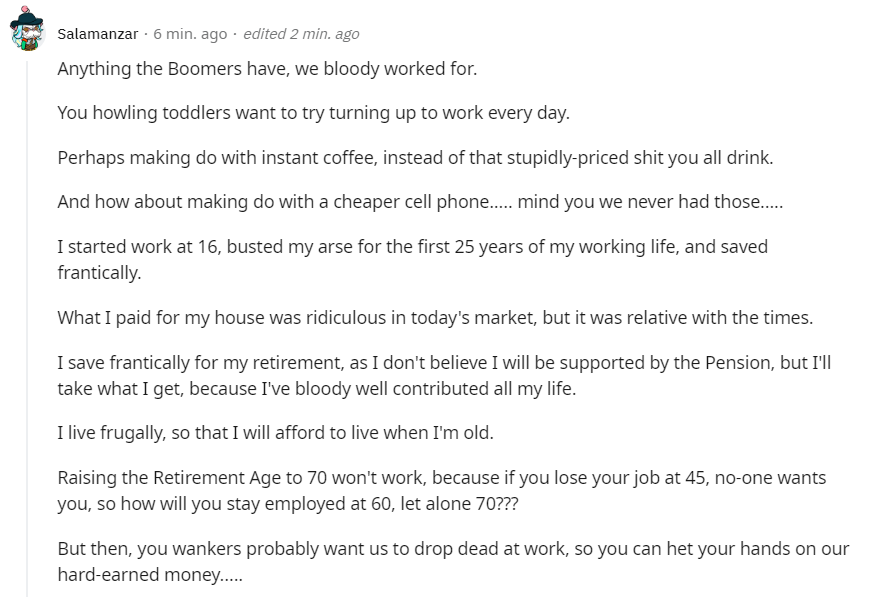
The war drums are beating, and everyone can hear them. The Western powers are arraying themselves for a cataclysmic showdown with the Eurasian axis of Russia, Iran and China. This means they’re going to be looking for cannon fodder to help them kill Russians, Iranians and Chinese people. But it won’t be as simple as previous times.
The glib assumption made by the Western ruling class is that they can declare an eternal war against their Russian, Iranian and Chinese foes, and simply draft young Westerners to fight it. This is what they have done in previous wars, and it worked out great for them. Today’s ruling class, however, have lost touch with reality somewhat: they don’t realise that many of the old rules of mass manipulation no longer apply.
Recent mainstream media propaganda has pushed the concept of conscription on us. This has been especially true in Britain and in Australia. But the Establishment was not prepared for the reaction from the populace. Many young people (not just VJM Publishing) have expressed an extreme unwillingness to allow themselves to get conscripted to fight for the West.
Why?
Most young people today feel like the social contract has been broken. The intergenerational social contract, as has been understood for centuries, was that each generation leaves the following generation a better society, in return for getting a decent pension from that society. The elders were respected and given a cut of society’s proceeds because they had left a quality standard of living to the next generation.
Today’s young people aren’t getting a better society. By most honest measures of wealth and well-being, young people today are doing much worse than the Boomers did, sometimes several times worse. This is especially true when it comes to housing: young people today have to put in about four times as much effort to own a house. The Boomers are now extorting the younger generations to the maximum.
On top of that, the Boomers are mass importing cheap labour to compete with the Boomers’ own descendants on housing and wages. So those descendants are finding themselves having to scrap with half of the Third World just to get a quarter of what their parents had. It’s a rotten deal by any fair analysis.

So now many young people are saying to themselves: if the social contract was never upheld for us, why should we uphold it for anyone else? Why fight for an arrangement where we’re little better than slaves, sentenced to pay off mortgage debts to Boomers until we’re decrepit ourselves?
Why fight for a system that’s rigged against us? Young people in the trenches against China wouldn’t be fighting for a system that gave them a better chance of owning a house and raising a family than the Chinese system, but the opposite (the homeownership rate in China is close to 90%). They’d be fighting for a system of usurious enslavement that sought to suck the life energy not only from them but from their descendants for generations to come.
No young Westerner can, with a clean conscience, support the system that has enslaved them. It follows that they would only fight for it under the most extreme form of duress. Given the extent of the fragging that existed near the end of the Vietnam War, the ruling class could rightly be concerned that something similar would happen again if they brought conscription back, only on a bigger scale.
Moreover, some are asking: Fight for what?
It’s no longer clear that we even have nations anymore, at least not in the way that we’re used to thinking about them. The advent of multiculturalism has meant that the old in-group boundaries are now very fluid. The countries our ancestors fought for are now very different – some would argue categorically different.
Most young Westerners now understand that they’re being replaced by Third World cheap labour, and that this replacement is not a natural phenomenon. Rather, it is deliberately being orchestrated by the Western ruling class for profit. So what would we be fighting for in the case of getting conscripted to kill Russians? A McNation of cheap labour imports? An economic zone ruled by an ideology of “every man for himself” economics?
Our families would be better off if we didn’t go to war. The only beneficiaries of war today are the globalists who would not only get to destroy their rivals, but who would also profiteer from the killing. Realising this en masse, young people are no longer willing to fight as previous generations had been.
Some of the unwillingness to fight can be attributed to the influence of alternative media. For decades now, alternative media outlets devoted to the fight against evil have served to educate the public about the workings of the ruling class, and how they manipulate the rest of us into doing their bidding. VJM Publishing has been among those, and we will continue to do what we can to enlighten people about how the warmongers manipulate them into battle.
*
For more of VJM’s ideas, see his work on other platforms!
For even more of VJM’s ideas, buy one of his books!
*
If you enjoyed reading this essay/article, you can get a compilation of the Best VJMP Essays and Articles from 2021 from Amazon as a Kindle ebook or paperback. Compilations of the Best VJMP Essays and Articles of 2020, the Best VJMP Essays and Articles of 2019, the Best VJMP Essays and Articles of 2018 and the Best VJMP Essays and Articles of 2017 are also available.
*
If you would like to support our work in other ways, subscribe to our SubscribeStar fund, or make a donation to our Paypal! Even better, buy any one of our books!



